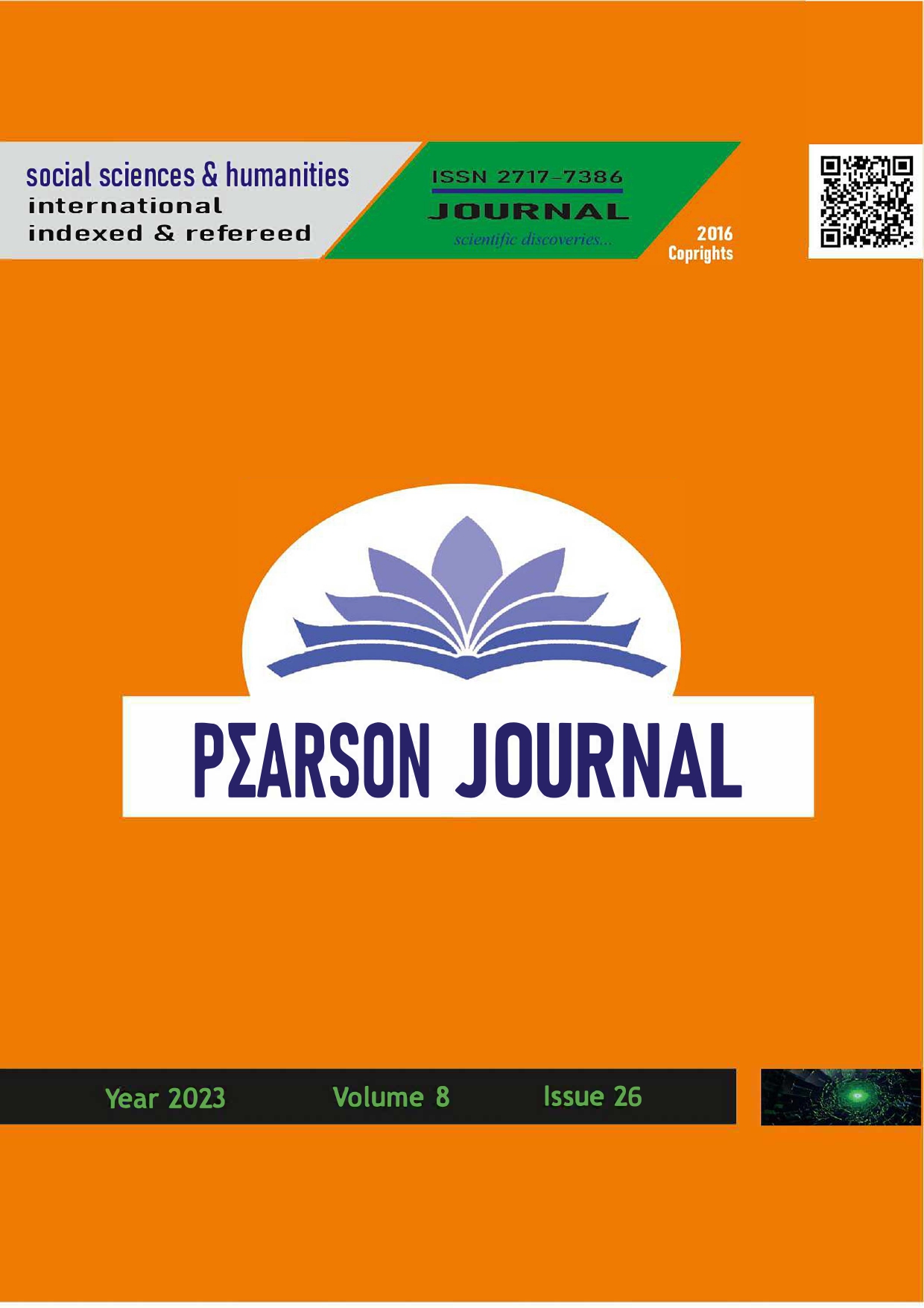Psychology of Reading & Overcoming Reading Difficulties: An Overview
DOI:
https://doi.org/10.5281/zenodo.10433338Anahtar Kelimeler:
Reading, Disability, Difficulty, School, ChildrenÖzet
One of the most critical transversal abilities for success in both school and society is reading comprehension. Children who struggle with specific reading comprehension issues can effectively decode texts, but they have serious comprehension issues. Reading comprehension issues are common among elementary and secondary school pupils and can have detrimental effects on their academic performance. Fluency is one of the most important aspects of reading success. Phonology, orthography, and semantics are all necessary for reading, which is a higher-order cognitive skill that also depends on more fundamental cognitive skills like working memory, speed measurements, attention switching and shifting, and cognitive control (inhibition and concentration). The development of cognitive control and general growth of the brain are most important during childhood and adolescence. As a result, cognitive training given in childhood and adolescence might be more beneficial than cognitive training given in old age.
Referanslar
Aylward, G. P., Stancin, T., Wolraich, M., Drotar, D., Dworkin, P., & Perrin, E. (2008). Screening and assessment tools. Measurement and psychometric considerations. Developmental Behavioral PediatricsEvidence and Practice. Philadelphia: Elsiver, 123-9.
Berninger, V., & Traweek, D. (1991). Effects of a two-phase reading intervention on three orthographic-phonological code connections. Learning and Individual Differences, 3(4), 323-338.
Demirok, M. S., Gunduz, N., Yergazina, A. A., Maydangalieva, Z. A., & Ryazanova, E. L. (2019). Determining the Opinions of Special Education Teachers Regarding the Use of Assistive Technologies for Overcoming Reading Difficulties. International Journal of Emerging Technologies in Learning, 14(22).
Ehri, L. C., Roberts, T., Dickinson, D. K., & Neuman, S. B. (2006). The roots of learning to read and write: Acquisition of letters and phonemic awareness. Handbook of early literacy research, 2, 113-34.
Foorman, B. R., Petscher, Y., & Herrera, S. (2018). Unique and common effects of decoding and language factors in predicting reading comprehension in grades 1–10. Learning and Individual Differences, 63, 12-23.
Glazzard, J. (2010). The impact of dyslexia on pupils' self‐esteem. Support for learning, 25(2), 63-69.
Gough, P. B., & Tunmer, W. E. (1986). Decoding, reading, and reading disability. Remedial and special education, 7(1), 6-10.
Guthrie, J. T., McRae, A., & Klauda, S. L. (2007). Contributions of concept-oriented reading instruction to knowledge about interventions for motivations in reading. Educational Psychologist, 42(4), 237-250.
Handler, S. M. (2016). Dyslexia: What you need to know. Contemporary Pediatrics, 33(8), 18.
Hulme, C., & Snowling, M. J. (2011). Children's reading comprehension difficulties: Nature, causes, and treatments. Current Directions in Psychological Science, 20(3), 139-142.
Hutzler, F., Ziegler, J. C., Perry, C., Wimmer, H., & Zorzi, M. (2004). Do current connectionist learning models account for reading development in different languages? Cognition, 91(3), 273-296.
Jordan, J. A., McGladdery, G., & Dyer, K. (2014). Dyslexia in higher education: Implications for maths anxiety, statistics anxiety and psychological well‐being. Dyslexia, 20(3), 225-240.
Kennedy, B. (2003). Hyperlexia profiles. Brain and language, 84(2), 204-221.
Kilpatrick, D. A. (2015). Essentials of assessing, preventing, and overcoming reading difficulties. John Wiley & Sons.
Landerl, K. (2000). Influences of orthographic consistency and reading instruction on the development of nonword reading skills. European journal of psychology of education, 15, 239-257.
Landi, N. (2010). An examination of the relationship between reading comprehension, higher-level and lower-level reading sub-skills in adults. Reading and writing, 23(6), 701-717.
Landi, N., & Ryherd, K. (2017). Understanding specific reading comprehension deficit: A review. Language and linguistics compass, 11(2), e12234.
Levine, M. D. (2009). Differences in learning and neurodevelopmental function in school-age children. In Developmental-behavioral pediatrics (pp. 535-546). WB Saunders.
Lindeblad, E., Svensson, I., & Gustafson, S. (2016). Self-concepts and psychological well-being assessed by Beck Youth Inventory among pupils with reading difficulties. Reading Psychology, 37(3), 449-469.
Logan, S., Medford, E., & Hughes, N. (2011). The importance of intrinsic motivation for high and low ability readers' reading comprehension performance. Learning and Individual Differences, 21(1), 124-128.
Lyon, G. R., Shaywitz, S. E., & Shaywitz, B. A. (2003). A definition of dyslexia. Annals of dyslexia, 53, 1-14.
Mann, V. A. (2002). Reading disorders, developmental. Encyclopedia of the Human Brain, Academic Press, 141-154, ISBN 9780122272103.
Mugnaini, D., Lassi, S., La Malfa, G., & Albertini, G. (2009). Internalizing correlates of dyslexia. World Journal of Pediatrics, 5, 255-264.
Panneton, R., McIlreavy, M., & Bhullar, N. (2008). Preverbal Development and Speech Perception. Encyclopedia of Infant and Early Childhood Development, Academic Press, 624-636, ISBN 9780123708779
Roberts, T. A., Vadasy, P. F., & Sanders, E. A. (2018). Preschoolers’ alphabet learning: Letter name and sound instruction, cognitive processes, and English proficiency. Early Childhood Research Quarterly, 44, 257-274.
Sebastian-Galles, N. (2020). Bilingualism. Encyclopedia of Infant and Early Childhood Development, Academic Press, 172-182, ISBN 9780123708779
Steiner, G. (2001). Transfer of learning, cognitive psychology of. International Encyclopedia of the Social & Behavioral Sciences, Pergamon, 15845-15851, ISBN 9780080430768
İndir
Yayınlanmış
Nasıl Atıf Yapılır
Sayı
Bölüm
Lisans
Telif Hakkı (c) 2023 PEARSON JOURNAL

Bu çalışma Creative Commons Attribution 4.0 International License ile lisanslanmıştır.


